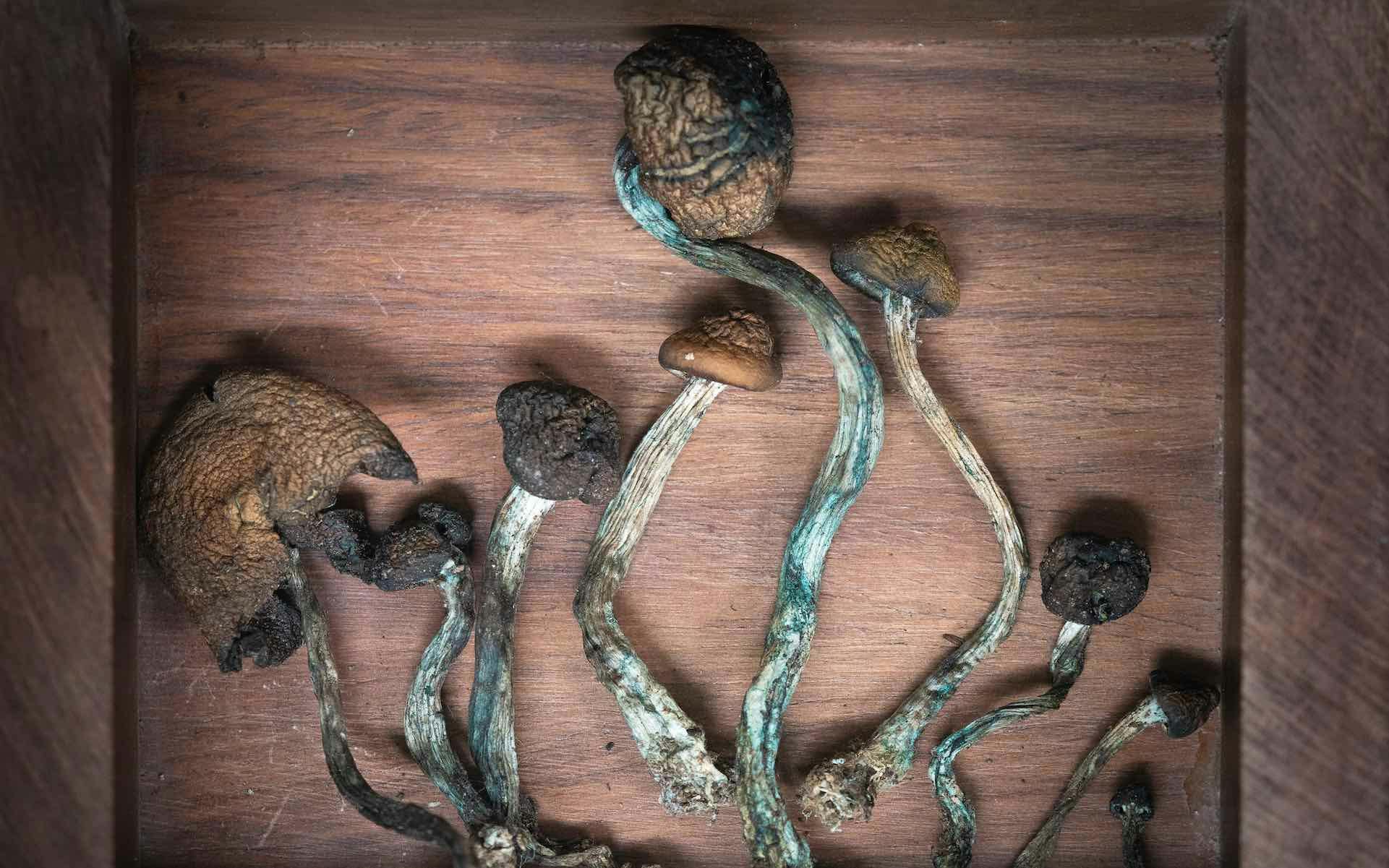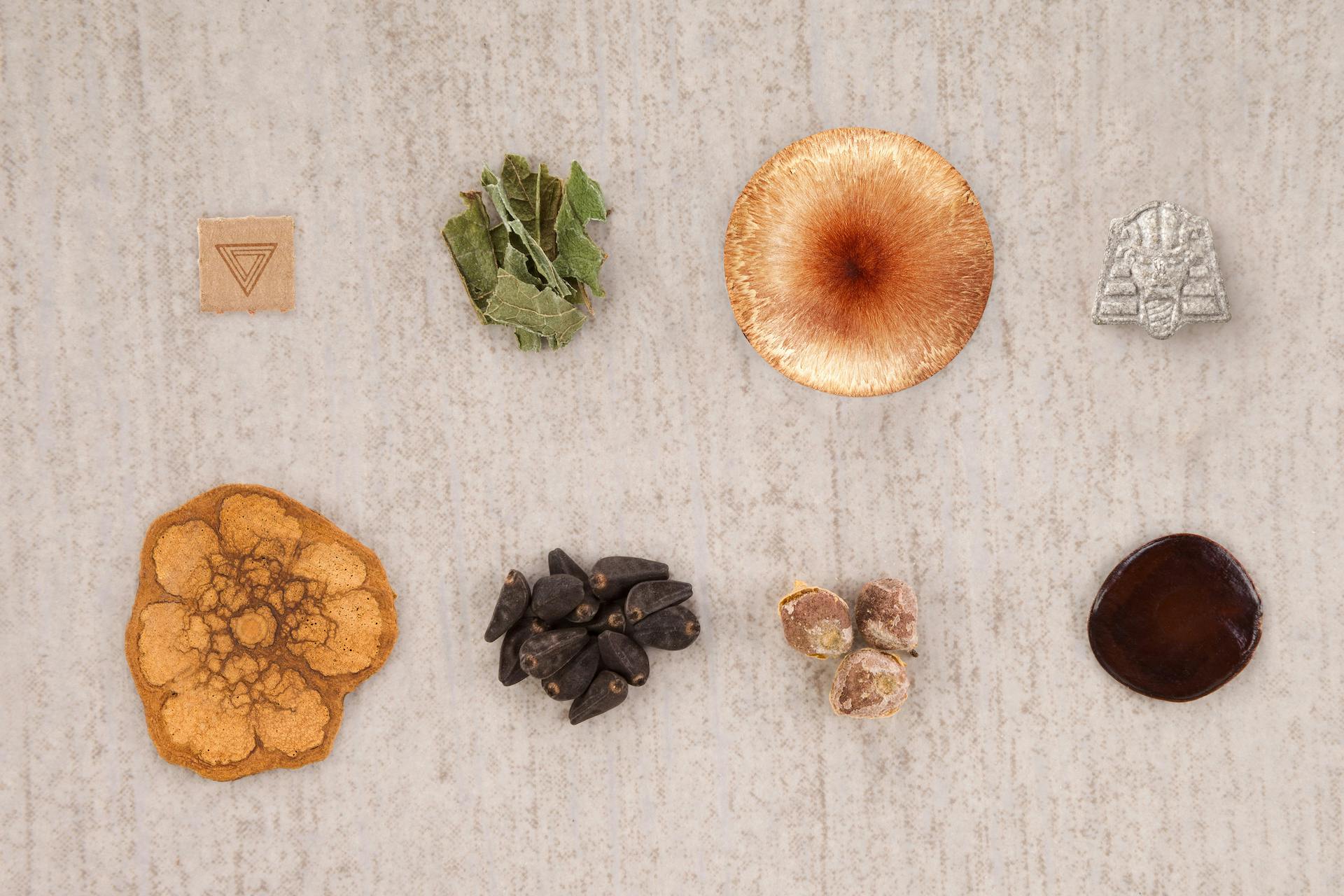Written by Emma Stone

If you’ve experimented with weed and journeyed with psychedelics, you’ll know that the two experiences overlap in some ways but diverge in others.
Hallucinogenic experiences such as distortions in time, perceptual changes, or loss of motor skills may occur after consumption of either cannabis or psychedelics, but are these similarities sufficient for cannabis to qualify as a psychedelic? How different are cannabis and psychedelics, really?
How consumers use cannabis and psychedelics
Cannabis and psychedelics are typically used and experienced differently. A 2020 survey of 319 cannabis and psychedelic consumers found that the majority of the participants drew a clear line between the two in terms of motivations for using each, and the type of experiences they had.
Of the participants, 75% reported that their cannabis experiences did not resemble experiences with psychedelics. On average, consumers restricted psychedelic use to 1-10 times per year, with 69% of respondents saying they had a spiritual motivation for using a psychedelic.
Cannabis, on the other hand, was used, on average, 51-100 times per year, with only 25% of participants using the plant for spiritual purposes. Cannabis use was generally associated with motivations such as recreation, bonding with friends, relaxation, and coping with personal problems.
Two different paths through history and culture
Federal perceptions of cannabis and psychedelics have also influenced people’s understanding of the substances—both have been stigmatized, and the residue of history and culture continue to influence perceptions of each.
“Unlike traditional psychedelics, cannabis was subject to intense social and political scrutiny,” said Dr. Winston De La Haye, MD, a senior lecturer of psychiatry at the University of the West Indies and medical director at the Aion International Center for Psychedelic Psychiatry.
“Harry Anslinger, the Commissioner of the Federal Bureau of Narcotics during the prohibition era, took the scientifically unsupported idea of marijuana as a violence-inducing drug, connected it to Black and Hispanic people, and created a perfect package of fear to sell to the American media and public,” said De La Haye. Beginning with the Marihuana Tax Act in 1937, Black and Hispanic people were arrested for the use, possession, and distribution of cannabis far more than whites.
Shop highly rated dispensaries near you
Showing you dispensaries nearPsychedelics, on the other hand, initially came into the public consciousness in the 1950s, and were legitimized by scientific research. “Research into the potential therapeutic effects of LSD and other hallucinogens, like psilocybin, produced over 1,000 scientific papers and six international conferences,” said De La Haye.
Although pioneering psychiatrists demonstrated that psychedelics had significant therapeutic potential, research was halted due to a backlash against hippie anti-war counterculture in the ‘60s, and psilocybin and other psychedelics were outlawed.
How can cannabis be considered a psychedelic?
Although there’s evidence to differentiate cannabis from psychedelics, the two substances also share a lot in common.
“The definition of a psychedelic is hallucinogenic, distorting perception and awareness,” said Dr. Stephen Barnhill, M.D., Executive Chairman of Aion Therapeutics, and a plant medicine expert. “Cannabis could certainly be considered a psychedelic: We know cannabis can cause time dilation, euphoria, and hallucinatory symptoms much like classic psychedelics.”
Barnhill also emphasized that, like psychedelic compounds, too high a dose of cannabis can cause a “bad trip” of sorts—intense paranoia or agitation.
“Some cannabis effects are psychedelic in nature,” said Dr. Lonny Weiss, an integrative psychologist with an expertise in plant medicine. “Cannabis is known for its hallucinogenic effects, which include distortions of time or space, loss of motor skill control, detachment from oneself or the surrounding environment, and hallucinations.”
Weiss points out that rather than debating whether or not cannabis could be understood as a psychedelic, it could be more useful to identify both as entheogens.
“[Entheogens are] defined as promoting life-altering experiences, profound insights, and spiritual connectedness, or ‘generating the God within,’” said Weiss. “Like psychedelics, the use of Cannabis sativa has been widely documented as a powerful shamanic medicine for thousands of years all over our planet—many people across the world view cannabis as a master plant or teacher.”
Such views were echoed by cannabis consumers in the 2020 survey mentioned above, albeit a small group: Of the 319 participants, 25% had a spiritual or self-expansionary motive for using cannabis and regarded the plant as an entheogen.
What’s more, the survey participants reported experiences that resembled psychedelics in certain respects, such as enhanced connections and increased feelings of love toward other people.
How does cannabis affect the mind and body compared to psychedelics?
Similar to psychedelics, cannabis can change how an individual perceives and understands the world around them.
Psychedelics suppress the default mode network (DMN) in the brain, which allows an individual to look at a situation from a new perspective—everything old becomes new again, said Weiss. And cannabis produces an effect similar to this.
The default mode network (DMN) is a system responsible for processing self-referential thoughts, like introspection, self-criticism, self-reflection and autobiographical memory. Basically, if you’re thinking about yourself, the DMN is likely involved. The suppression of the DMN can promote communication and integration across different regions of the brain, changing perception and how you see yourself in relation to the world around you.
However, the longevity of perceptual changes can differ between cannabis and psychedelics. Positive alterations in mood and outlook are short-lived in cannabis compared to LSD or psilocybin, according to Barnhill. What’s more, a psychedelic trip tends to last longer than cannabis—magic mushrooms, for example, last an average of 6-8 hours, while a weed high wears off after 1-3 hours.
It’s clear that cannabis and psychedelics both influence perception, but the effects of cannabis are typically more subtle. “Psychedelic substances tend to radically alter our perceptions,” said Weiss. “Cannabis can help address long-term issues that require management on a daily basis, while psychedelics are useful in taking a deep dive into the psyche or your problems.”
Cannabis also interacts with the body differently than psychedelic compounds because of its unique effects on the endocannabinoid system and that system’s regulation of key physiological functions, such as appetite. Psychedelics do not interact with the endocannabinoid system.
Both cannabis and psychedelics, however, affect a receptor in the brain, the 5-HT2A receptor. “Both cannabis and the classic psychedelics bind with this receptor, which is responsible for causing psychedelic effects,” said Weiss. “At high enough doses, cannabis can activate the psychedelic receptor so the user experiences hallucinations.”
Therapeutic potentials for cannabis and psychedelics
Both psilocybin and cannabis can be used to treat certain mental health issues, albeit in different ways, and the success of using either to treat issues can depend on having an experienced expert to facilitate treatment.
Cannabis can function as a helpful starting point for individuals undergoing assisted psychotherapy who don’t feel ready for a full psychedelic journey. “Patients can gain insights into their issues and problems without the fear of losing self-control that the stronger psychedelics bring to mind,” said Weiss. “Think of it like the recent Virgin Galactic flight—you get to experience weightlessness briefly before being exposed to the full ride into outer space.”
Cannabis and psychedelics may even work together as a treatment for certain mental health disorders—CBD is thought to reduce anxiety and paranoia during a psilocybin trip, potentially making the treatment more effective, said Barnhill.
What is clear is that the intention for using cannabis or psychedelics matters a lot and influences the kind of experience a person has. So, maybe the question needs to be reframed; rather than asking if cannabis can be considered a psychedelic, one might ask instead: Under what circumstances can cannabis produce psychedelic effects?
By providing us with your email address, you agree to Leafly's Terms of Service and Privacy Policy.



